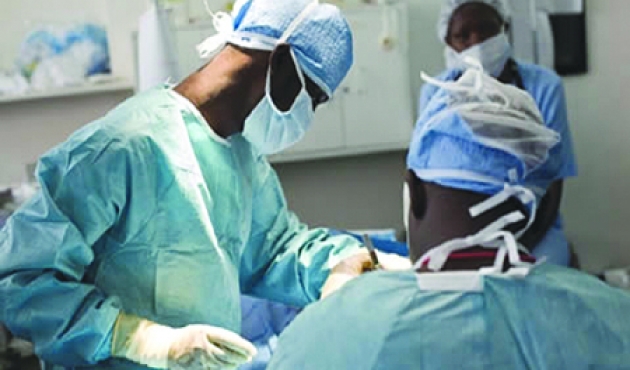Liberia battles to halt the spread of the Ebola disease in its crowded, run-down ocean-side capital Monrovia, recording the most new deaths as fatalities from the world’s worst outbreak of the deadly virus rose above 1,200.
 Liberia battles to halt the spread of the Ebola disease in its crowded, run-down ocean-side capital Monrovia, recording the most new deaths as fatalities from the world's worst outbreak of the deadly virus rose above 1,200.
Liberia battles to halt the spread of the Ebola disease in its crowded, run-down ocean-side capital Monrovia, recording the most new deaths as fatalities from the world's worst outbreak of the deadly virus rose above 1,200.
The government imposed a curfew to run from 9 p.m. (2100 GMT) to 6 a.m. in an effort to prevent the spread of the Ebola virus, state radio said on Tuesday.
The epidemic of the hemorrhagic disease, which can kill up to 90 percent of those it infects, is ravaging the three small West African states of Liberia, Sierra Leone and Guinea, and also has a toehold in Nigeria, Africa's biggest economy.
As the Geneva-based World Health Organization rushed to ramp up the global response to the outbreak, including emergency food deliveries to quarantined zones, it announced that deaths from it had risen to 1,299 as of Aug. 16, out of 2,240 cases.
Between Aug. 14-16, Liberia recorded the most new deaths, 53, followed by Sierra Leone with 17, and Guinea with 14.
On a more hopeful note, the WHO expressed "cautious optimism" that the spread of the Ebola outbreak in Nigeria, Africa's most populous nation where four deaths out of 12 confirmed cases have been recorded since July, could be stopped.
It also described the situation in Guinea, where the virus made its first appearance in West Africa in December, as currently "less alarming" than in Liberia and Sierra Leone.
The WHO said it was working with the U.N.'s World Food Programme (WFP) to ensure food delivery to 1 million people living in Ebola quarantine zones cordoned off by local security forces in a border zone of Guinea, Liberia and Sierra Leone.
"Providing regular food supplies is a potent means of limiting unnecessary movement," it said in a statement.
Besides infection in border zones, Liberia is fighting to stop the spread of the virus in the poorest neighborhoods of its capital, such as the West Point slum where at the weekend a rock-throwing crowd attacked and looted a temporary holding centre for suspected Ebola cases, 17 of whom fled.
WHO has said it is coordinating a "massive scaling up" of international assistance to the worst affected countries.
On Friday, the Liberian and Sierra Leonean governments and a medical charity chided the WHO for its slow response, saying more action was needed to save victims threatened by the disease and hunger.